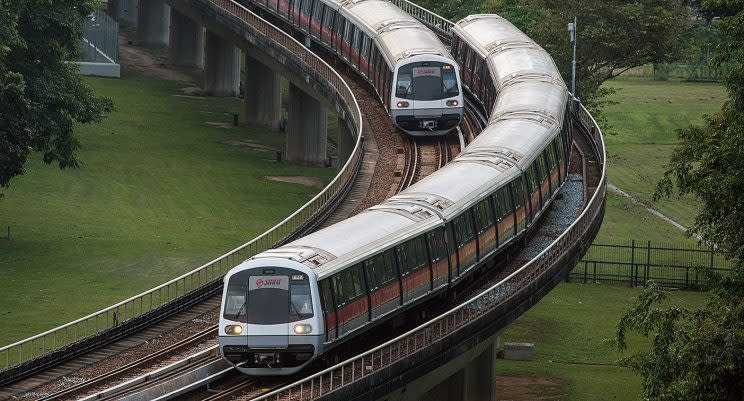'No choice' but to test train signalling system across the day: SMRT

SMRT has “no choice” but to conduct checks for the new signalling system on the North-South and East-West Line (NSEWL) throughout the day, even during weekday peak hours, said SMRT Trains’ chief executive officer Lee Ling Wee on Monday (10 July).
In a statement posted on SMRT’s blog explaining the “intricacies of implementing a new signalling system on an existing line”, Lee said that if the company were to restrict performance checks to weekends or engineering hours – between 1.30am and 4.30am – it would take years to implement the new system.
He added that it would not be “prudent” to shut down the lines for extended hours for the checks as the NSEWL sees about two million passenger trips daily.
The NSEWL has been hit by a number of disruptions since the testing of the signalling system began. On 28 June, a signalling fault led to NSEWL train services being halted for nearly two hours.
Replying to those who have asked why the re-signalling project takes so long – especially since SMRT is not the first operator in the world to change signalling systems – Lee said the system supplier cannot simply replicate the “well-oiled” systems of other countries.
“The procedure is tedious, because no railway systems are identical in the way they are designed and operated. The system hardware and software we have are customised for the unique local environment,” he said.
Unlike the Circle Line incident in 2016 when SMRT had to deal with “unknown unknowns”, SMRT is now “adopting a planned, systematic approach to identify and rectify the issues in our signalling trials”, added Lee.
This approach includes having checks take place in a few stages. Each software update is tested in the laboratory before it is tested on the tracks during engineering hours. Only then are the updates applied during passenger service hours.
Adding that SMRT was now “ironing out teething issues with the new signalling system”, Lee said that SMRT conducts joint investigations with the Land Transport Authority and system supplier Thales to “come up with hardware and software fixes to rectify the issues”.
When software-related issues cropped up during the weekday checks, the three bodies “managed to identify the root causes and developed operational workarounds while waiting for software fixes to be implemented by Thales,” he said.
“My team and I have learned a lot from Singapore’s very first re-signalling project. We are keenly aware of commuter feedback and inconvenience due to the ongoing performance checks,” he said.
Related stories:



